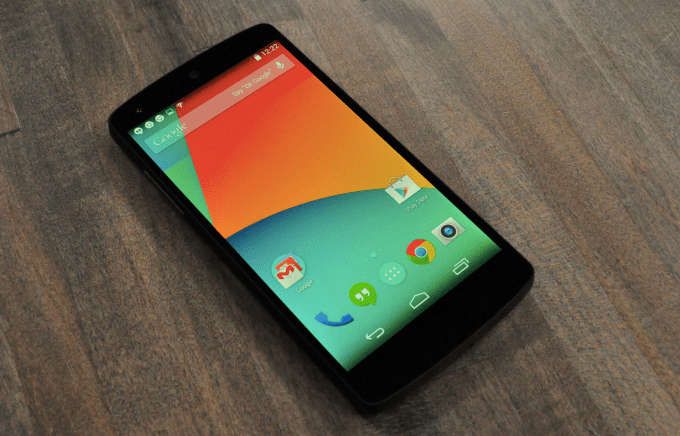

Google will be concerned the European Commission’s antitrust commissioner, Margrethe Vestager, is not letting up the pressure in an ongoing probe of its Android mobile OS.
In a speech today at a conference in the Netherlands, Vestager said her department is now “closely” examining Google’s contracts with mobile makers and carriers — with specific concerns focused on the requirements the company places on mobile partners to pre-load its apps on devices.
“Our concern is that, by requiring phone makers and operators to pre-load a set of Google apps, rather than letting them decide for themselves which apps to load, Google might have cut off one of the main ways that new apps can reach customers,” she said.
We’ve reached out to Google for a reaction and will update this post with any response. Update: A spokesperson for the company has now provided the following statement to TechCrunch: “Anyone can use Android, with or without Google applications. Hardware manufacturers and carriers can decide how to use Android and consumers have the last word about which apps they want to use on their devices. We continue to discuss this with the European Commission.”
The EC announced an in-depth investigation of Google’s Android OS one year ago, at the same time as issuing a formal statement of objections against another aspect of the company’s business — the Google Shopping search comparison service — the latter as part of a long-running investigation, already five years old this time last year.
By contrast the Android probe looks to be progressing far more swiftly, with some reports suggesting the Commission is preparing to issue formal charges as soon as this week.
On Friday, for example, Politico reported the EC’s antitrust investigators have been asking Google’s rivals and customers to hand over confidential evidence in recent weeks — asserting this is “usually” a sign the department is ready to escalate a probe.
Last fall the EC antitrust chief described the Android probe as having a “high priority” for her department.
Asked today whether it is preparing to issue formal objections against Android, a spokeswoman for the Competition Commission declined to comment — beyond confirming: “The investigation is ongoing.”
Vestager took over from prior EC competition commissioner, Joaquin Almunia, in November 2014, and swiftly turned her attention to Google’s modus operandi, opening a fresh front with the Android probe.
She contextualized her sense of urgency today, vis-a-vis enforcing fair competition in the digital businesses sector, by pointing to the pace of growth in WhatsApp’s business as an example of how quickly the landscape can change. And therefore how quickly regulators must move to keep pace.
“Take WhatsApp. It launched in 2009 with seed funding of 250 thousand dollars. By the time the Commission looked at its merger with Facebook, just five years later, it had 600 million users across the world. Today, it has a billion users,” she noted, adding: “That kind of change could wipe out another company’s business before it has time to react. So we need to be sure that big companies don’t try to protect themselves by holding back innovation.
“That’s why we’re looking closely at Google’s contracts with phone makers and operators which use the Android operating system.”
In recent years, reports have suggested Google has been increasing the requirements it places on mobile partners to use the Google-flavored version of Android which comes bundled with its Play Store. So while manufacturers are free to use the open source version of Android, which does not include stipulations for pre-loading Google services, doing so means forgoing the primary consumer lure of the platform: an app store containing more than one million apps.
In a blog post published after the EC launched its Android antitrust probe last year, Google argued its partner agreements are voluntary, adding that anti-fragmentation stipulations are aimed at promoting a “great” experience for users of the platform, while it said Android’s app distribution agreements are to ensure “people get a great ‘out of box’ experience with useful apps right there on the homescreen”.
It went on to argue that pre-loading apps also helps Android OEMs compete with Apple, Microsoft and “other mobile ecosystems that come preloaded with similar baseline apps”.
However, that argument fails to note Android’s massive dominance of the mobile ecosystem — with circa 80 per cent of global marketshare of smartphones (in some European markets the platform accounts for closer to 90 per cent of sales). Meanwhile Microsoft’s marketshare of smartphones hovers around one per cent, while Apple’s iOS only accounts for around a fifth.

